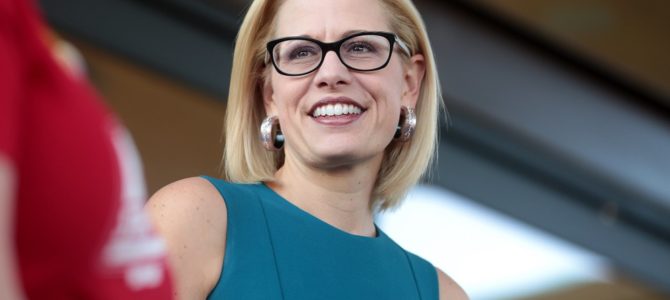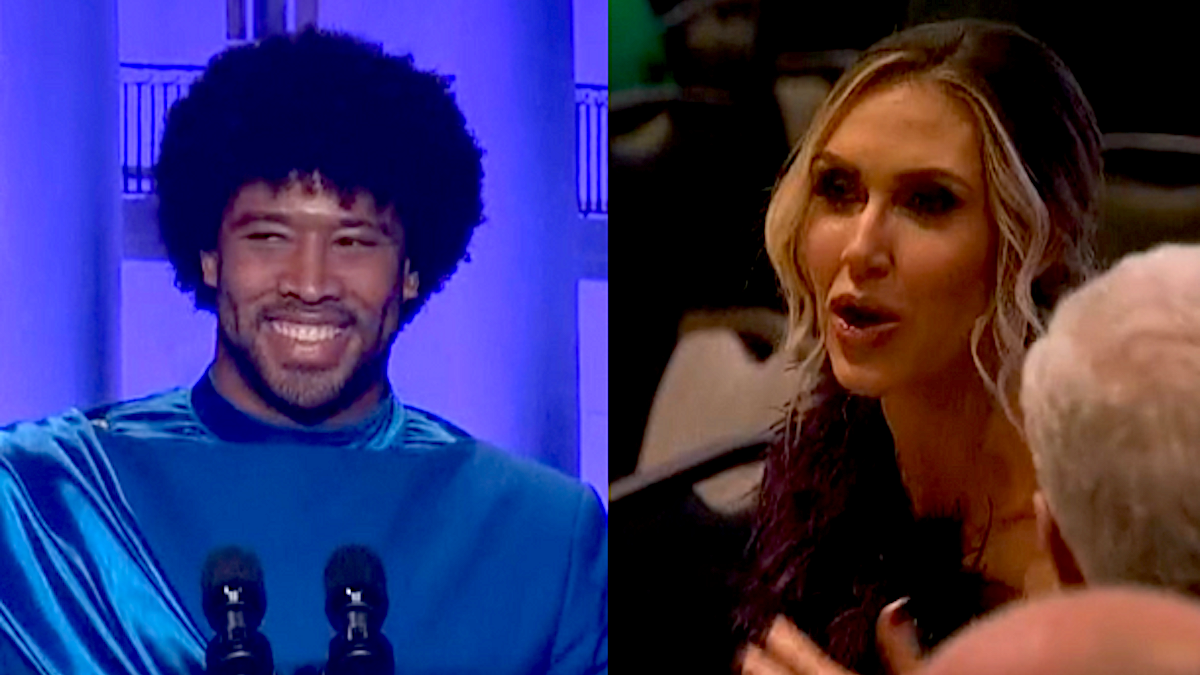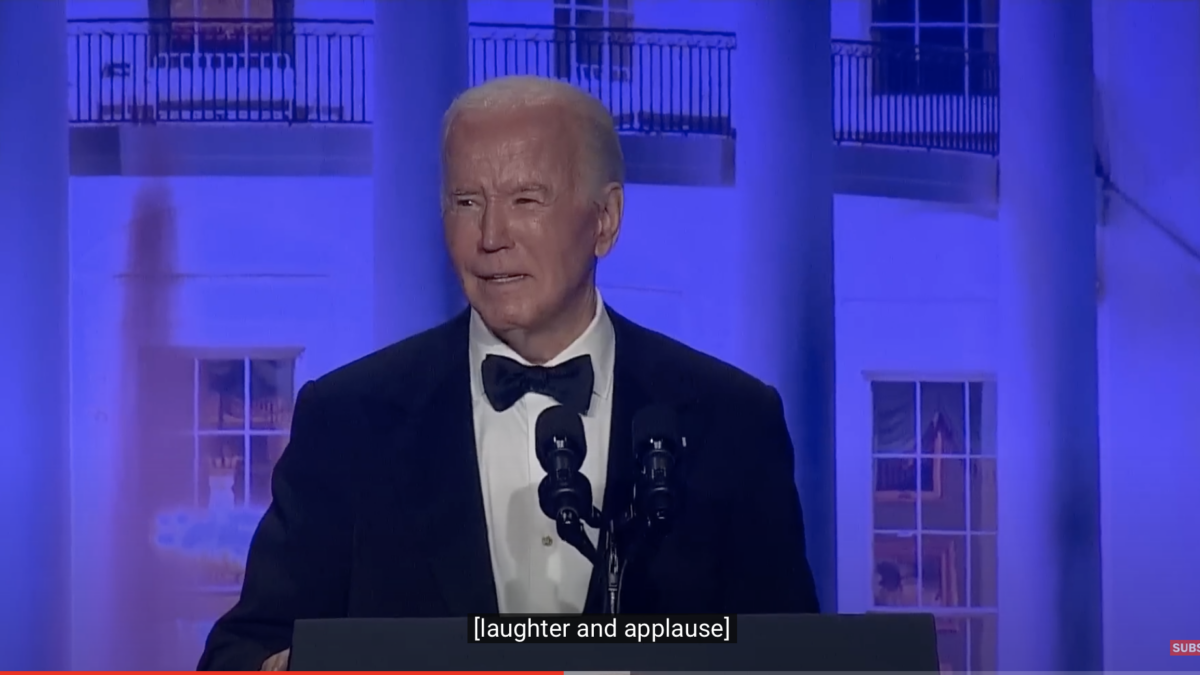
Yesterday, Arizona Republic reported that Sen. Kyrsten Sinema (D-Ariz.) “is facing a censure vote from the Arizona Democratic Party,” whose farthest left members feel Sinema has been too acquiescent toward President Trump’s policies. Dan O’Neal, the state coordinator of Progressive Democrats of America, claims Sinema has abandoned the Democratic stances she supposedly ran on.
Sinema was elected senator of Arizona in 2018, replacing Jeff Flake and defeating Republican candidate Martha McSally. According to Arizona Republic, Sinema’s voting record indicates that, while in the House (where she served from 2013 to 2018), Sinema opposed Trump’s agenda 46% percent of the time; in the Senate, 81% percent of the time. The Democrats cite, among other things, her vote to confirm Attorney General William Barr and her unwillingness to revive “net neutrality” rules as spots of contention.
The censure vote against Sinema reveals the malady that plagues contemporary politics. In an age of hyperpartisanship, where party lines have taken on frustratingly tribal qualities, Sinema’s more moderate approach should be lauded, not censured.
When Sinema announced her senatorial win on Facebook back in 2018, she spoke directly to this notion of finding “common ground.” In fact, a quick Facebook search of her previous posts reveals that Sinema has shared tens of posts over the last several years emphasizing the importance of being able to work alongside those with whom we disagree. In 2016, four months before the election of President Donald Trump, Sinema shared a lengthy post espousing this view, an excerpt which is included below:
We can work with people who are different than us. We can be friends with people who are different than us. We can love and care about people who are different than us. We can be good people who care deeply about each other even when we disagree.
We can start by listening to someone with a different opinion. Listening not to rebut or debate, but listening to understand…
We can articulate our own opinions and beliefs without believing or saying that someone else’s are therefore wrong. We can embrace difference while seeking common ground. We can work together to meet the challenges our country faces.
Sinema’s posts are revealing in a few ways. They indicate that the narrative being spread by the farthest-left wing of the Arizona Democrat Party—that Sinema has somehow been unfaithful to the platform she ran on for Senate—is false. Rather, being someone who hopes to reach across the aisle seems to be precisely the platform on which she ran. Furthermore, Sinema wasn’t always a more moderate voice, making her determination to find commonalities with the opposing side arguably more admirable.
Sinema’s political past is peppered with far-left causes. She was a Green Party spokeswoman in Arizona at age 25. In the early 2000s, she organized more than a dozen anti-war protests. She has engaged with farther left figures, including a radio host who eventually became known in the 9/11 truther movement.
This isn’t to delegitimize Sinema’s current stances, but to trace Sinema’s path to the center, which represents something of a feat. Indeed, her shift from the farther side of the spectrum towards the center may offer guidance—and consolation—to those within the Democratic Party who fear alienating the progressive wing. Her story reveals that such a shift can be done, but at a certain cost, apparently.
The backlash against Sinema provides a window into the state of leftist orthodoxy and why it’s important to acknowledge those who forge their own political paths. When criticizing Sinema, O’Neal explained that the purpose of the censure was to alter her voting patterns. “The way she is voting is really disappointing. We want Democrats to vote like Democrats and not Republicans.”
O’Neal’s criticism reveals an ironic tone deafness about fulfilling the actual definition of democratic. Polling data from Arizona company OH Predictive revealed just last month that Sinema had a favorability rating of more than 60 percent. Among likely 2020 Democratic voters, her favorability topped 80 percent, and even among likely 2020 Republican voters, Sinema’s favorability rating was over 40 percent.
Discussion of these values is not to suggest that every Democrat should be embracing her inner Republican. It’s to show that the censure the Arizona Democratic Party seeks is an entirely selfish endeavor. Their very public reprimanding of Sinema is not about addressing dissatisfaction among the electorate, as can be seen from Sinema’s numbers. It’s about shaming someone for not ascribing to the party orthodoxy, which regrettably prioritizes uniformity over the interests of the voters.
While censuring politicians in theory is reasonable, it seems to be employed here as a cudgel to curb the voices of the electorate. With both Democrats and Republicans, a more effective means to get majority-level votes would be to sell the party’s ideas to the electorate so they vote for someone who supports those ideas. This approach, while more tedious, seems more ethical and effective than censuring politicians for keeping their voters happy.
In age where political parties are starting to feel like social clubs with strange purity tests, we should be encouraging the Sinemas of Washington, not shaming them. As Meghan McCain of “The View” tweeted earlier today, this censure sadly represents “everything wrong with politics today.”
This article has been corrected since publication.









